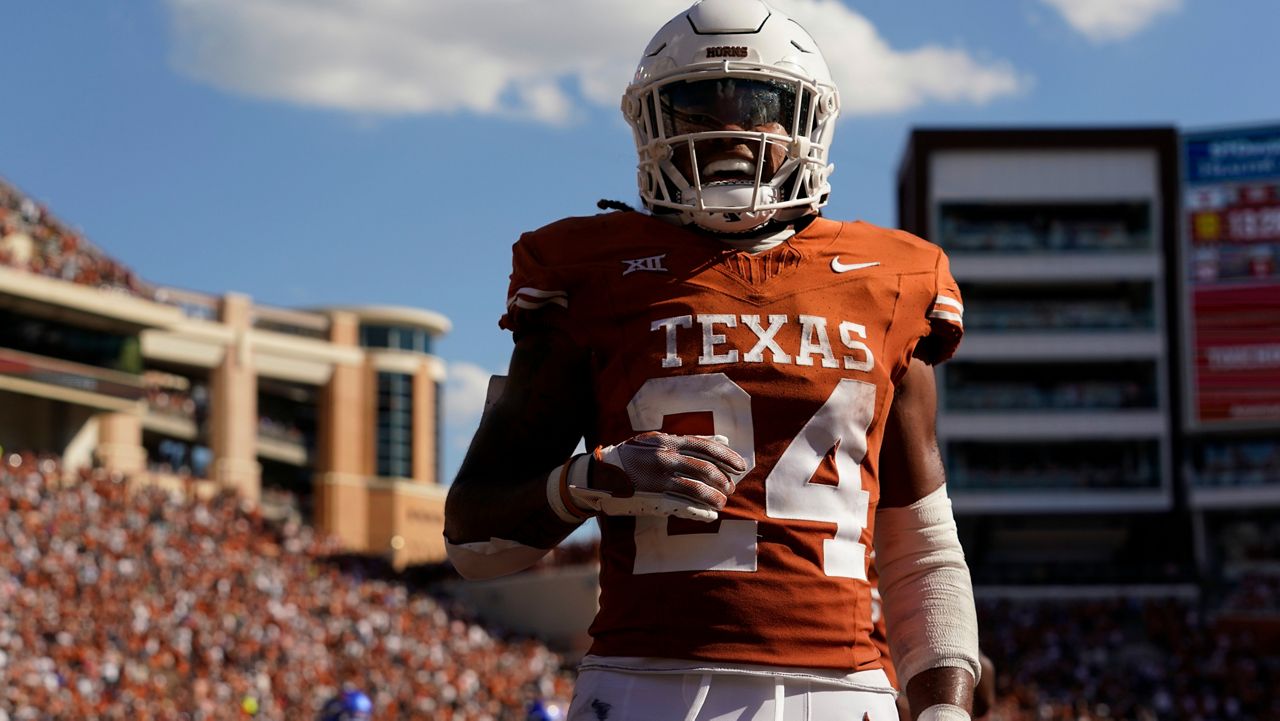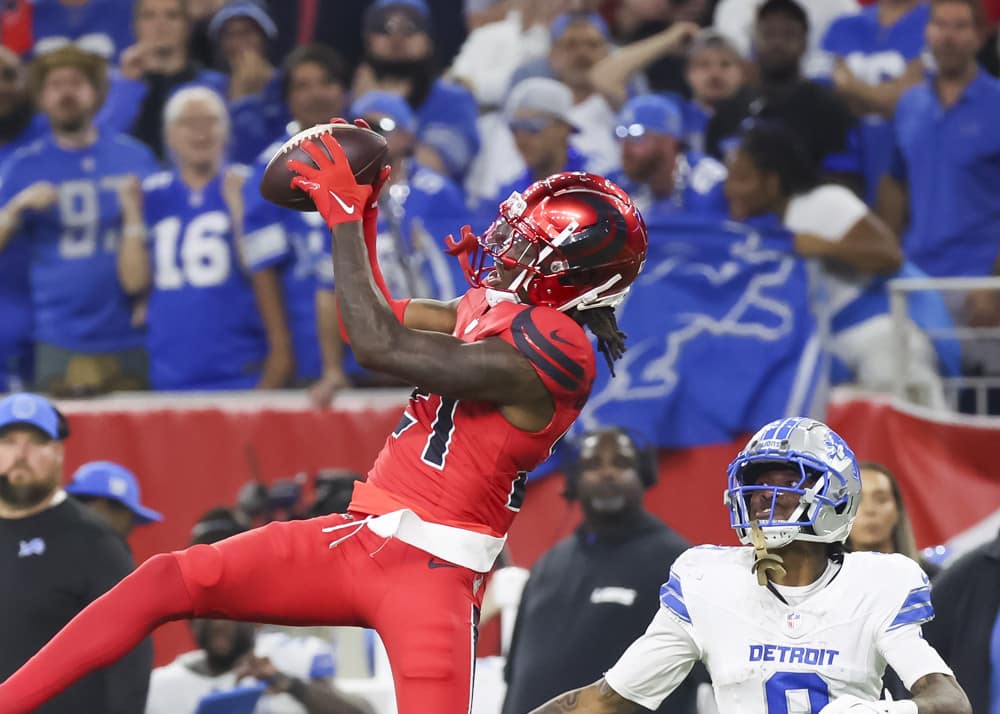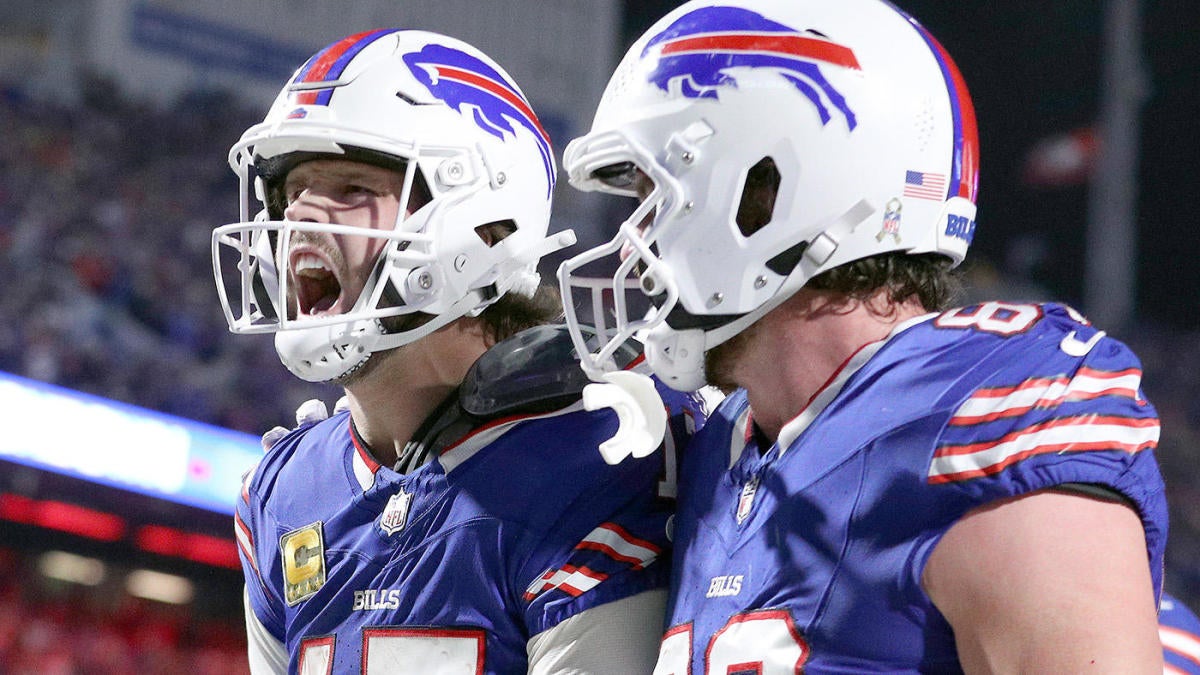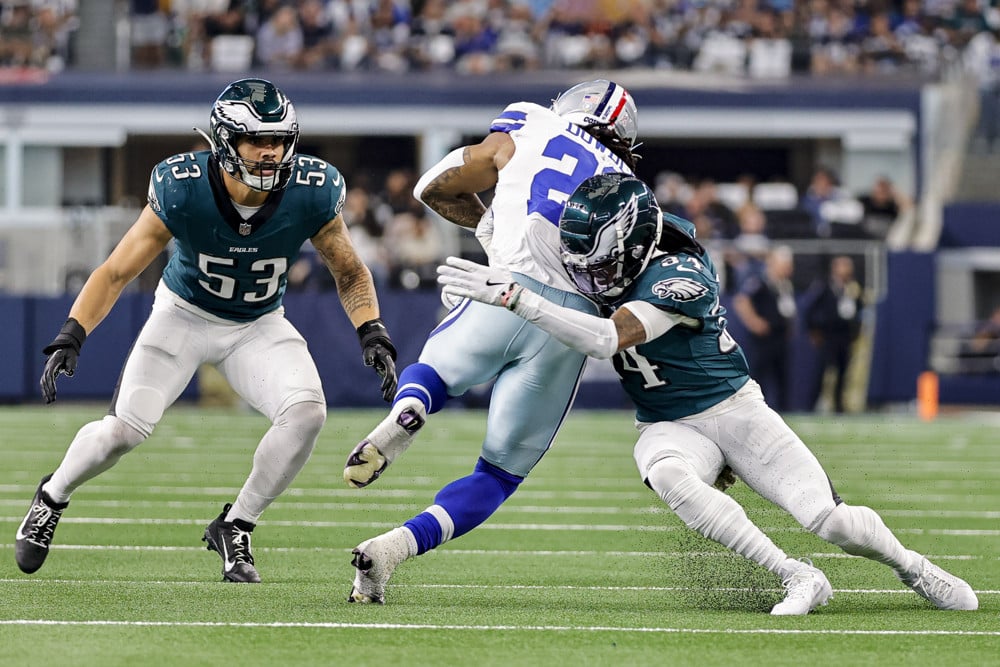Sports
Long wait for first running back to be drafted ends

The long wait for the first running back to be drafted finally came to an end.
The Carolina Panthers traded up six spots to take Texas running back Jonathon Brooks with the 46th pick in the NFL draft Friday night, the second-latest selection for the first running back to go off the board.
Brooks might have gone earlier, but he tore his ACL late in the season after rushing for 1,139 yards in 11 games.
The only draft that had a longer wait for a running back came in 2014. Bishop Sankey was the first one taken when he went 54th to Tennessee that year.
The only other time in the common draft era starting in 1967 when no running backs were taken in the first round came two years ago, when Breece Hall was the first taken at No. 36 by the New York Jets.
“I think for us, we value the running backs and we value the running game,” Panthers general manager Dan Morgan said. “I think to have a guy like Jonathon Brooks, he was a guy we loved and identified. … They are valuable to us because we are going to be running the ball.”
There was a belief that the first running back picked could start a run at the position with several other top backs projected to go in the second and third rounds of the draft. But it took 20 more picks before the next back was selected, with Florida State’s Trey Benson going to Arizona with the second pick in the third round.
Two more backs went later in the third round as the Rams took Michigan’s Blake Corum 83rd and Green Bay took Southern California’s MarShawn Lloyd with the 88th pick. The backs taken so far match the low for the first three rounds in the common draft era previously hit in 2021 and 2016.
“It’s hard to think about,” Benson said about the lack of running backs drafted. “I know the position is devalued but that just means we have a lot of work to do and I know this running back class will turn it around.”
Teams have been shying away from using premium picks at running back in recent years as offenses have focused more on the passing game and teams have shifted away from using bell-cow backs.
There was a brief respite last season when Atlanta drafted Bijan Robinson eighth overall and Detroit took Jahmyr Gibbs with the 12th pick — both going off the board before any wide receivers.
This year there were a record-tying seven wide receivers drafted in the first round, marking the 13th time in the past 14 drafts that more receivers went in round one than running backs, with the lone exception being 2018. That happened just once in the first 17 years of the common draft era.
But since the start of the rookie wage scale in 2011, there have been 59 receivers taken in the first round compared to 19 running backs.
Brooks believes the league is underrating the position.
“I guess the league and all of the fans will see this year,” Brooks said. “I do agree that as a running backs class, and in the NFL in general, I think a lot of people are going to start showing why we should be held to a higher standard.”
The league is coming off the first season since 1990 when no running back carried the ball at least 300 times with Derrick Henry leading the league with 280. That followed a 2023 offseason when several star running backs failed to generate lucrative long-term contracts as NFL teams dedicate their resources more to the passing game.









